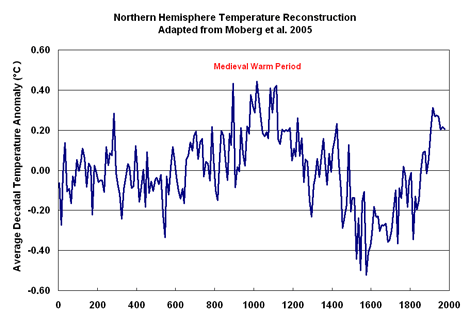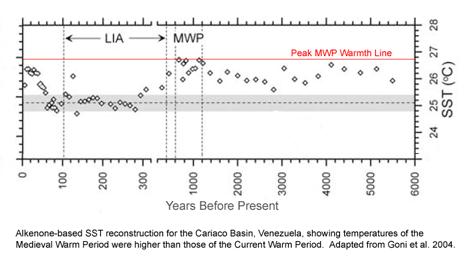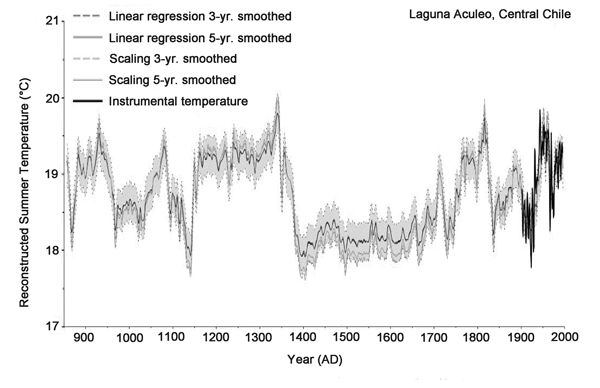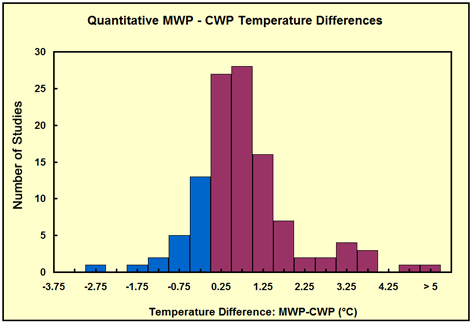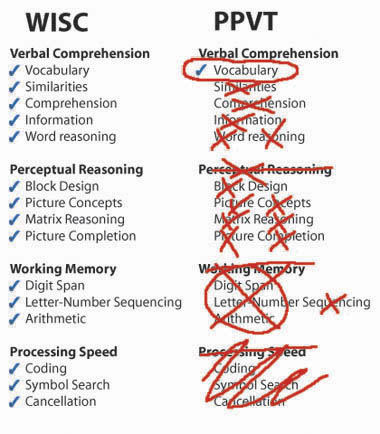The consensus of global warming usually argues that all (or most) scientists accept anthropogenic global warming theory. Not only does science not operate by consensus (science isn't a vote), even if there is a consensus this wouldn't really change my views. Why? There used to be consensus that the world was going to cool (Skepticalscience.com counters saying there was scientific dissent... there is scientific dissent now!), consensus that plate tectonics was fake, oil could only be found near the surface (my grandfather actually was the first to dissent from that theory), that the sun revolved around the earth, that evolution was false (I believe in evolution), the world was flat, etc. But, does a consensus actually exist on this issue?.
Over 31,000 scientists have signed the petition project against global warming, nine thousand with Ph.D.'s [1].
Now, alarmists usually counter: only 39 climatologists have signed. First, this is true, but as your name is publicly published (and dissent from the IPCC leads to loss of funding) it is likely many climatologists have abstained. Second, there are many types of climate science often ignored: meteorology, geology, physics, etc. All of these sub-groups have enough understanding of the natural world to be potent signers.
Most meteorologists accept the idea of natural climate change. The majority of TV meteorologists oppose AGW theory, John Coleman, for example, is an avid skeptic (Coleman created the weather channel). An alarmist would likely ignore meteorologists, they only deal with weather not climate. However, Roy Spencer turns this around [2]:
So, meteorologists can be considered valid scientists in this issue.
How about geologists? Climate effects geology, they have to understand climate. Climate, such as warmth, rain, wind, ice ages (glaciers), etc... they all know it. If they do not, they can't understand how certain rocks form, erode, or why certain formations look the way they do. Geologists may even be more qualified then the average climatologist. Why? They have a longer perspective. Alexander Cockburn reports Peter Sciaky, a retired geologist, view [3]:
Knowing weather fluctuations [2], and past warming cycles [3], is key to understanding modern global warming. Therefore, many legitimate scientists with great knowledge of climate dissent from global warming.
Spencer makes an accusation that really doesn't surprise me: many climatologists, like him (the ones that have 'consensus') may be hiding their views. He argues he is not the first person to figure out the PDO, using models, fits the warming perfectly (unlike CO2 which requires hours to make it work. In other words, his theory actually fits the data better). Spencer claims others likely have found this, but have not shown their data to others [2]. Makes sense: go against the consensus, and funding might dissipate.
Let's wander away from the petition project: any other evidence?
Yes. Paul Macrae noes 45% of geologists think nature and humans cause warming, only 26% argue its fully man made. The American Association of Petroleum Geologists has this position [4]:
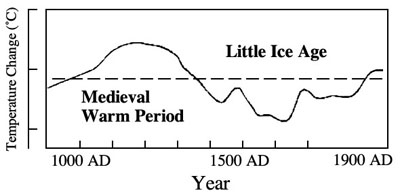
This warming isn't unusual, why argue its man-made?
When looking at meteorologists, their views are also skeptical. Only 30% of meteorologists are worried about global warming. 89% believe in global warming, of that 89%, only 59% believe global warming is man made. However, only 38% of that group believes the warming will harm us in the next 100 years [5]. If overall 30% are worried, and 38% of the 89% are worried, then lets assume there is an 8% difference. So, this means 51% of meteorologists believe in AGW, a 49% dissent is no consensus. The most famous meteorologists all oppose AGW [6].
There is no reason to believe in a 'consensus', the debate is not over, and will likely never be.
1. http://www.petitionproject.org/
2. Spencer, Roy W., Ph.D. The Great Global Warming Blunder: How Mother Nature Fooled the World's Top Climate Scientists. New York: Encounter, 2012. Print.
3. http://www.counterpunch.org/2007/06/09/dissidents-against-dogma/
4. http://www.paulmacrae.com/?p=62
5. http://www.forbes.com/sites/jamestaylor/2012/03/14/shock-poll-meteorologists-are-global-warming-skeptics/
6. http://www.examiner.com/article/meteorologists-continue-to-challenge-global-warming-theory
Over 31,000 scientists have signed the petition project against global warming, nine thousand with Ph.D.'s [1].
Now, alarmists usually counter: only 39 climatologists have signed. First, this is true, but as your name is publicly published (and dissent from the IPCC leads to loss of funding) it is likely many climatologists have abstained. Second, there are many types of climate science often ignored: meteorology, geology, physics, etc. All of these sub-groups have enough understanding of the natural world to be potent signers.
Most meteorologists accept the idea of natural climate change. The majority of TV meteorologists oppose AGW theory, John Coleman, for example, is an avid skeptic (Coleman created the weather channel). An alarmist would likely ignore meteorologists, they only deal with weather not climate. However, Roy Spencer turns this around [2]:
I contend that climate variability cannot be understood without understanding the complexities of weather. After all, climate is average weather, and if you don't understand what controls variations in weather then you won't be able to understand all the potential sources of climate change. Our 2008 paper demonstrated how daily fluctuations in cloud cover can cause substantial temperature trends over ten years.
So, meteorologists can be considered valid scientists in this issue.
How about geologists? Climate effects geology, they have to understand climate. Climate, such as warmth, rain, wind, ice ages (glaciers), etc... they all know it. If they do not, they can't understand how certain rocks form, erode, or why certain formations look the way they do. Geologists may even be more qualified then the average climatologist. Why? They have a longer perspective. Alexander Cockburn reports Peter Sciaky, a retired geologist, view [3]:
A geologist has a much longer perspective. There are several salient points about our earth that the greenhouse theorists overlook (or are not aware). The first of these is that the planet has never been this cool. There is abundant fossil evidence to support this–from plants of the monocot order (such as palm trees) in the rocks of Cretaceous Age in Greenland and warm water fossil in sedimentary rocks of the far north. This is hardly the first warming period in the earth’s history. The present global warming is hardly unique. It is arriving pretty much "on schedule."Due to the fact geologists understand past warming, and can compare it to present, they would be able to identify whether or not this was an unusual warming. If it is not, as Sciaky argues, there is no reason to trust in AGW theory.
Knowing weather fluctuations [2], and past warming cycles [3], is key to understanding modern global warming. Therefore, many legitimate scientists with great knowledge of climate dissent from global warming.
Spencer makes an accusation that really doesn't surprise me: many climatologists, like him (the ones that have 'consensus') may be hiding their views. He argues he is not the first person to figure out the PDO, using models, fits the warming perfectly (unlike CO2 which requires hours to make it work. In other words, his theory actually fits the data better). Spencer claims others likely have found this, but have not shown their data to others [2]. Makes sense: go against the consensus, and funding might dissipate.
Let's wander away from the petition project: any other evidence?
Yes. Paul Macrae noes 45% of geologists think nature and humans cause warming, only 26% argue its fully man made. The American Association of Petroleum Geologists has this position [4]:
The earth’s climate is constantly changing owing to natural variability in earth processes. Natural climate variability over recent geological time is greater than reasonable estimates of potential human-induced greenhouse gas changes. Because no tool is available to test the supposition of human-induced climate change and the range of natural variability is so great, there is no discernible human influence on global climate at this time.The reason geologists are skeptical? As stated, its because they understand past climate. Graphs like this create geologists views:

This warming isn't unusual, why argue its man-made?
When looking at meteorologists, their views are also skeptical. Only 30% of meteorologists are worried about global warming. 89% believe in global warming, of that 89%, only 59% believe global warming is man made. However, only 38% of that group believes the warming will harm us in the next 100 years [5]. If overall 30% are worried, and 38% of the 89% are worried, then lets assume there is an 8% difference. So, this means 51% of meteorologists believe in AGW, a 49% dissent is no consensus. The most famous meteorologists all oppose AGW [6].
There is no reason to believe in a 'consensus', the debate is not over, and will likely never be.
1. http://www.petitionproject.org/
2. Spencer, Roy W., Ph.D. The Great Global Warming Blunder: How Mother Nature Fooled the World's Top Climate Scientists. New York: Encounter, 2012. Print.
3. http://www.counterpunch.org/2007/06/09/dissidents-against-dogma/
4. http://www.paulmacrae.com/?p=62
5. http://www.forbes.com/sites/jamestaylor/2012/03/14/shock-poll-meteorologists-are-global-warming-skeptics/
6. http://www.examiner.com/article/meteorologists-continue-to-challenge-global-warming-theory
